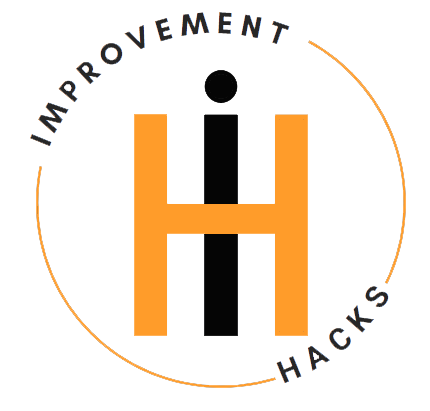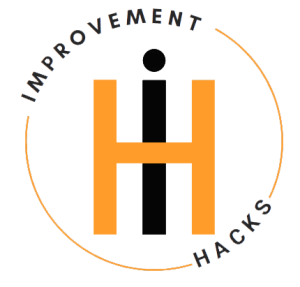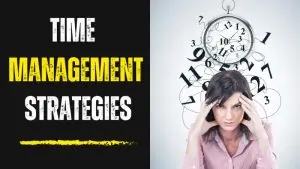Most of us need to start believing in ourselves, because it is crucial for our success.
It helps us to reach our goals, realize our dreams, and improve our overall happiness.
On the other hand, the opposite can also be true.
If we don’t believe in ourselves, we’re less likely to take action, embrace change, or strive for any improvement in our lives.
In fact just by expecting to fail, we will actually increase our chances of failing (Bénabou & Tirole, 2002).
This shows us that believing in ourselves is like the key that starts the engine of a car.
Without it, we’re basically stuck.
So, no matter how much we try to push forward, if our thoughts, feelings, and actions don’t support our goals, we end up either not doing what’s necessary or unintentionally hindering our own progress.
This can happen in ways that are clear to see and also in ways that we don’t even notice.
So, how can you start to believe in yourself more?
How to Believe in Yourself
Believing in yourself is made up of several important parts, such as self-worth, self-confidence, self-trust, autonomy, and environmental mastery:
Self-worth: means feeling that you are a person of value.
Self-confidence: refers to having a positive view of your skills, qualities, and decisions.
Autonomy: is the ability to make your own choices and guide your own actions.
Environmental mastery: is the belief that you can make changes happen through your efforts.
These elements are crucial for nurturing your belief in yourself.
Whether you find it difficult to embrace just one of these aspects, or maybe even all of them, recognizing where you face challenges is the first step towards changing how you see yourself.
By identifying these areas, it becomes easier to begin transforming how you perceive yourself.
Ask Yourself These Questions
To find out what might be stopping you from fully believing in yourself, consider these questions:
Self-worth: Do you see yourself as valuable just as you are? Do you feel you are just as good as anyone else?
Self-confidence: Are you confident in your abilities? Do you feel positive about your qualities and your ability to make decisions?
Self-trust: Do you trust yourself to do what you say you will do?
Autonomy: Do you feel you have the freedom to pursue what you want? Do you believe that no one can hold you back from achieving your dreams?
Environmental mastery: When you take steps towards your goals, do you believe your actions will bring about the outcomes you want? Do you feel capable of achieving what you set out to do?
If you find yourself answering “no” or feeling uncertain about any of the questions, they might be the areas that could be undermining your ability to believe in yourself.
Take some time to reflect on these aspects and think about how you could change these self-beliefs to more strongly believe in yourself.
Learn to Trust Yourself
Change Your Self-Talk
After pinpointing the negative beliefs you hold about yourself, challenge them by responding to your inner critic.
If you feel a bit worthless, counter that by coming out with affirmations like, “You are a valuable, amazing person who deserves a great life.”
If you lack confidence, start to remind yourself of your strengths and capabilities.
Engaging in this kind of positive self-talk can help to boost your performance and outlook (Tod, Hardy, & Oliver, 2011).
Regularly affirming your worth helps reprogram the mental narratives that often hold us back, by replacing critical inner voices with supportive, encouraging ones.
Build Self-Trust
Trust is typically something we consider in relation to others, but it’s just as important to develop a trust in yourself.
The presence or absence of self-trust can affect us just like it does in our relationships with others.
For example: trusting someone means having faith in their honesty, dependability, and goodwill towards us.
Lacking self-trust might mean avoiding honest self-reflection because you’re unsure how you’ll handle the truths about yourself.
It could mean failing to follow through on promises you make to yourself, such as starting a new exercise regime.
You might even fear that you’ll act against your own interests.
This might sound strange, but it’s a common struggle.
If you’ve repeatedly failed to keep commitments to yourself, how likely are you to believe you’ll change?
Building trust in yourself involves several key steps:
Follow Through on Commitments: This might mean scaling back commitments, learning to say “no”, or maintaining a consistent schedule. You might need to experiment to find out what helps you stay true to your word.
Be Honest with Yourself: Reflect deeply to understand your true thoughts, feelings, and needs, setting aside the expectations others have for you.
Act on Your Beliefs: Live according to your values and follow your instincts. When your actions align with your true self, it’s easier to trust your ability to navigate your path.
Clarify Your Identity and Wants: Understand clearly who you are and what you want. Know what you are willing to do and what you are not. This clarity will help you make decisions you can trust and express them effectively.
By nurturing positive self-talk and building self-trust, you cultivate a stronger belief in yourself, enabling you to lead a fulfilling and confident life.
To Sum it up
Believing in ourselves is more than just trying hard to love ourselves or going out and chasing our dreams.
It’s about recognizing where we are stuck and gently figuring out how to move forward.
Hopefully, these tips have given you a starting point to believe in yourself and make positive changes.
References
Bénabou, R., & Tirole, J. (2002). Self-confidence and personal motivation. The quarterly journal of economics, 117(3), 871-915.
Tod, D., Hardy, J., & Oliver, E. (2011). Effects of self-talk: A systematic review. Journal of Sport and Exercise Psychology, 33(5), 666-687.






